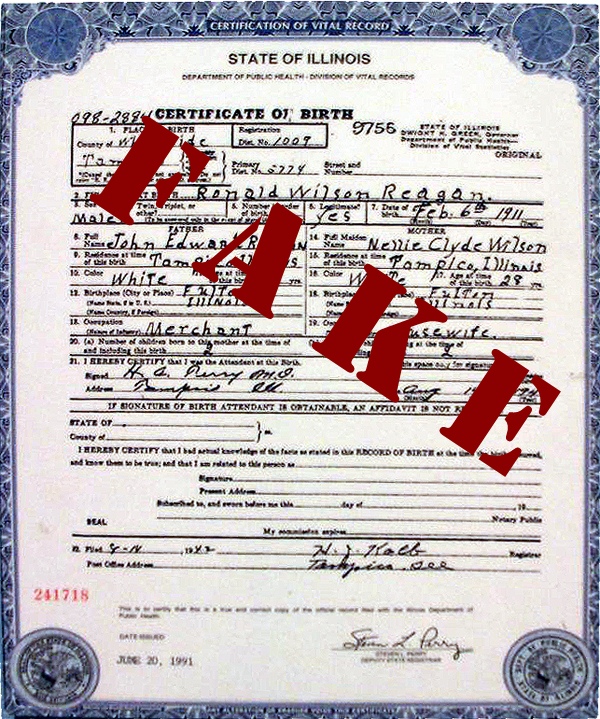Proving a parent-child relationship is key to the approval of most family-based immigration petitions. Proof is typically shown through the birth certificate of the child. This document not only establishes the fact of birth but also identifies parentage. It is therefore generally accepted as sufficient proof of the parental relationship.
What happens in a situation where the child who is ready to petition her parent discovers that her parent has been using a “fake” name? How will this complicate the petitioning process?
Agnes was born in the United States. Her mother, Annie had been living as an undocumented immigrant in the US for many years when she gave birth to Agnes almost 21 years ago. Agnes is a US citizen by birth.
Agnes was told that when she turns 21 years old, she would be able to help Annie obtain lawful residence status and get a green card.
Agnes will be turning 21 years old this June. She began to gather all pertinent documents she figured she would need in order to file a petition for her mother. Agnes found her birth certificate listing her birth mother, “Annie.” She asked her mother to produce her own birth certificate for submission. To Agnes’ great consternation, her mother’s birth certificate listed her as “Teresita,” not “Annie.” All her years growing up, she has only known her mother as “Annie.”
Her mother then revealed to Agnes that the name “Annie” was not her real name but a fictitious name she assumed and used to enter the US. She also has a different birthday from that indicated in Agnes’ birth certificate.
Listed on birth certificate
Why did her mother list a different name in her own daughter’s birth certificate? Is it not illegal to use a fictitious name and list it on a recorded instrument like a birth certificate? Is there a real person with the name Annie? Did her mother steal Annie’s identity? More questions came to Agnes’ mind as she delved deeper into the reasons behind the fake name.
Teresita, aka Annie, related the whole story to Agnes. Many years back, before Agnes was even born, Teresita had a chance to go to the US. She overstayed and was eventually deported back to the Philippines. Her brief stay in America made her dream of going back and try to make a life for herself in the US. She was advised by a consultant, erroneously, that the only way she could reenter the US was by adopting a different identity. Teresita foolishly followed this advice. She admitted that she paid an agency in Manila a substantial amount obtain a Philippine passport with a different name and birth certificate. Teresita, now passing herself off as Annie, was granted a nonimmigrant visitor visa. She entered the US as “Annie” more than 21 years ago. Agnes is her daughter out of wedlock. The father abandoned them when Agnes was just 5 years old.
But Agnes says she cannot live without her mother. She is fearful that her mother might be deported if she even tries to file a petition for her. She is seriously contemplating whether or not it would be wise to assist her mother in getting an immigrant visa. Does Agnes have a chance of obtaining a valid visa for her mother?
Use of false documents
Unsuccessful visa applicants are oftentimes tempted to obtain visas through illegal means. The use of false documents to obtain a visa can have serious, sometimes irreversible consequences for the applicant. It is one of several grounds used for the denial of future immigration benefits. If the person in the US is in unlawful status, it is also a ground for deportation.
Quite often, the use of falsified documents is intentional. There are times, however, when visa applicants who use falsified documents are themselves victims of unscrupulous travel consultants who prey on the innocence and vulnerability of the eager and the foolhardy. But whether intentional or not, the adverse consequences attach equally. All risk denials of future applications for visas.
The use of a false identity is nothing less than material misrepresentation. As such, Agnes’ mother will find it difficult to obtain a visa without an approved “waiver” of the misrepresentation. But unlike other grounds for denial, consequences for use of false documents may be waived by filing an application with the US Citizenship and Immigration Services. If this waiver application is approved, a visa may be issued to Agnes’ mother.
There are remedial measures that the mother has to do before Agnes may even file a petition for her. The first step is to “correct” the false identity and have her mother’s real identity established by obtaining a validly issued identification or travel document. She can go to the nearest Philippine consulate and apply for a valid passport. Thereafter, legal steps must be taken to have Agnes’ birth certificate amended with the civil registry to reflect the mother’s real name and identity.
No valid excuse
Cases of using false documents vary in many respects. Waiver applications, because they depend in large measure on the facts and circumstances of each individual situation, may or may not be granted. If the waiver is denied, the ensuing result could be dire to the visa applicant.
Reasons vary as to why individuals opt to take such a risky route in order to obtain a visa. It is important to remember, nevertheless, that any reason or explanation given to why an individual misrepresents or uses falsified documents, while providing a possible basis for forgiveness, is never an excuse or justification for wrongdoing.
Source: inquirer







